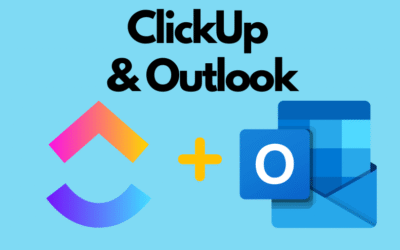In this comprehensive guide, we will explore various project management methods, their advantages, and applications. We will discuss traditional and agile approaches, as well as hybrid solutions that combine the best aspects of both worlds. Additionally, we will highlight the role of tools such as ClickUp in streamlining project processes and demonstrate how hiring a consultant can facilitate the implementation of the right methodology. Our goal is to provide you with practical knowledge that will improve project management in your organization.
Traditional Project Management Methodologies
Traditional project management methodologies like Waterfall, PRINCE2, and PMBOK have their roots in well-defined sectors and project types. These methods are especially effective when project requirements and plans are clearly outlined from the start, with minimal or unexpected changes.
Waterfall
The Waterfall methodology, also known as the sequential model, is one of the oldest and most fundamental project management methods. It follows a linear and sequential structure, dividing the project into distinct, independent stages. These stages include:
- Planning/Initiation
- Analysis
- Design
- Implementation/Execution
- Testing/Quality Assurance
- Deployment
In the Waterfall model, each stage must be completed before moving on to the next. This makes it very linear and inflexible, yet it provides a clear structure and control over the project. Waterfall works best for projects with well-defined requirements where little flexibility is needed. It is ideal for small projects with clear goals and time constraints.
PRINCE2
PRINCE2 (PRojects IN Controlled Environments) is a project management methodology developed by the UK government. It is a process-based method that emphasizes dividing the project into manageable and controlled stages. PRINCE2 is built upon seven principles, themes, and processes that can be adapted to the specific requirements of a project. Key processes include:
- Project Preparation
- Project Initiation
- Strategic Project Management
- Stage Control
- Product Delivery Management
- Stage Closing Management
- Project Closure
This methodology provides better control over resources and more effective management of business and project risks. PRINCE2 is widely used in both public and private sectors on an international scale.
PMBOK
The PMBOK (Project Management Body of Knowledge) standard, developed by the Project Management Institute, defines five process groups:
- Initiation
- Planning
- Execution
- Monitoring and Control
- Closure
The PMBOK Guide outlines 47 project management processes, grouped into 10 knowledge areas, covering integration, scope, time, cost, quality, human resources, communication, risk, procurement, and stakeholder engagement. This methodology focuses on the project manager’s activities and independence in decision-making.
Although traditional methodologies may seem rigid compared to agile methods, they still hold value in the project management world. The choice of the appropriate methodology depends on the project specifics, organizational requirements, and the preferences of the project team.
Agile Project Management Methodologies
Agile project management methodologies revolutionize project management by emphasizing flexibility, adaptation to change, and continuous improvement. Their main goal is to deliver customer value through short, iterative cycles.
Scrum
Scrum is one of the most popular agile project management methods, focusing on short, typically two-week sprints. In Scrum, the team is self-organizing and cross-functional. Key roles include the Product Owner, who manages the product backlog, the Scrum Master, who ensures adherence to Scrum principles, and the development team. Scrum uses tools like the sprint backlog, daily scrums, and sprint reviews and retrospectives, making it ideal for projects with changing requirements and the need for quick value delivery.
Kanban
Kanban is a methodology focused on visualizing work and optimizing task flow. Its main tool is the Kanban board, which tracks work progress in real time. Kanban emphasizes limiting the number of tasks in progress (WIP) to prevent team overload. Unlike Scrum, Kanban does not prescribe specific roles or timeframes. Teams focus on continuous process improvement and waste elimination, making Kanban well-suited for projects with variable priorities and a constant influx of tasks.
Lean
Lean, derived from the automotive industry, aims to eliminate waste and maximize customer value. Lean is based on five principles: defining value, mapping the value stream, creating flow, establishing a pull system, and striving for perfection. In project management, Lean focuses on identifying and removing non-value-adding activities to optimize processes and reduce delivery times.
Agile methodologies offer increased flexibility, better team communication, and faster delivery of customer value. The choice of methodology depends on project specifics, organizational culture, and team needs. Often, adapting and combining various approaches is the best way to create a methodology tailored to the project’s unique requirements.
Hybrid Project Management Approaches
In today’s dynamic business environment, the need to combine different project management methodologies is increasingly evident. Hybrid approaches have emerged as a response to the limitations of both traditional and agile methods, providing flexible solutions tailored to an organization’s specific needs.
Hybrid methodologies combine elements of traditional methods, like Waterfall, with agile practices, like Scrum or Kanban. This allows project teams to leverage the benefits of both approaches, adapting them to project requirements and organizational culture.
Scrumban
A popular hybrid approach, Scrumban combines Scrum’s structure of sprints and meetings with Kanban’s visual workflow and task limitation practices. Scrumban teams use Kanban boards for visualizing work, identifying bottlenecks, and managing tasks, while retaining Scrum elements like stand-up meetings and retrospectives. This hybrid approach works well for projects with evolving requirements and a need for flexible task management.
Agile-Waterfall Hybrid
Another example of a hybrid approach is the combination of Agile and Waterfall methodologies. This combination is particularly useful for large, complex projects where some elements require rigid planning while others need flexibility.
In the Agile-Waterfall Hybrid model, the planning and scope definition phases can be conducted traditionally, providing clear frameworks and directions for the entire undertaking. Then, during the execution phase, teams can transition to agile practices, such as iterative value delivery and adapting to changing requirements.
This approach allows for maintaining control over budget and schedule while providing room for innovation and a rapid response to changes in the project environment. It is especially beneficial in projects where some requirements are well-defined, while others may evolve during implementation.
Hybrid project management approaches offer many benefits, such as increased flexibility, better project control, and the ability to tailor the methodology to the organization’s specific needs. However, implementing such an approach requires a good understanding of both traditional and agile project management methodologies.
Choosing the right hybrid methodology depends on many factors, including the type of project, organizational culture, and team experience. It is important to thoroughly analyze the needs of the project and organization before deciding on a specific hybrid approach.
Regardless of the chosen methodology, continuous process improvement and adaptation to changing conditions are key. Hybrid project management approaches provide teams with the tools to effectively deliver projects in a dynamic business environment, combining the best of both worlds in project management.
Hiring BeProductive Consultants for ClickUp Implementation and Customization to Specific Project Management Methodologies
Effective implementation of project management tools, such as ClickUp, can be crucial to the success of an organization. Leveraging BeProductive’s offer for ClickUp implementation is a strategic step that can significantly speed up the adaptation and optimization of this powerful tool to your company’s specific needs.
We possess in-depth knowledge of the platform and its capabilities. Our role goes far beyond simple technical support—we are able to customize ClickUp to specific project management methodologies, such as Scrum, Kanban, or hybrid methods. This is particularly important when integrating ClickUp with existing processes within the organization.
One of the main advantages of working with us is the ability to quickly set up workspaces, streamline workflows, and implement effective automation. We can help create custom views that reflect the specificity of your projects and implement advanced features, such as time tracking and resource management.
The ClickUp implementation process with our assistance typically begins with a detailed analysis of the organization’s needs. We conduct diagnostics, focusing on identifying areas that require optimization. Based on this, we develop an implementation plan that takes into account your company’s specifics and the chosen project management methodology.
Another important aspect of our work is team training. Through interactive sessions, we help employees understand how to effectively use the tool in their daily work. This not only increases productivity but also reduces resistance to change, which often accompanies the implementation of new technologies.
After implementation is complete, we remain available to answer questions and address any doubts. This support is invaluable in the first weeks following implementation, as the team adapts to new processes and tools.
Hiring a BeProductive consultant is an investment that can bring tangible benefits. Thanks to professional implementation, organizations can avoid common mistakes, save time, and quickly achieve full efficiency in project management. As a result, companies can focus on what matters most—project delivery and achieving business goals.
To summarize, the ClickUp implementation performed by us can be a critical success factor in deploying and customizing this platform to your organization’s specific needs. Our expertise allows for the full utilization of ClickUp’s potential, translating into increased project management efficiency and improved business outcomes.
Conclusion
Project management methodologies hold immense importance in today’s dynamic business world. From traditional methods such as Waterfall to agile approaches like Scrum and Kanban, the diversity of available options enables companies to adapt to the unique needs of each project. Hybrid solutions, combining the best features of various methodologies, are becoming increasingly popular, allowing teams greater flexibility and efficiency in project delivery.
Ultimately, choosing the right methodology depends on many factors, including the type of project, organizational culture, and team experience. Tools like ClickUp can significantly streamline project management processes, and hiring an experienced consultant can help ensure effective implementation and adaptation of the chosen methodology. Regardless of the chosen approach, continuous process improvement and adaptation to changing conditions are key, enabling organizations to successfully deliver projects in a dynamic business environment.
Contact us today – We will help you implement ClickUp comprehensively!
Click below to learn more!
Schedule a free consultation
Related posts
ClickUp List Views – What do they offer and how to use them?
One of ClickUp's strengths, contributing to the system’s flexibility and clarity, is the ability to add multiple views that let you see the task list from different perspectives. In this article,...
How to add ClickUp for Outlook – step by step
If you use Outlook and work with the ClickUp tool, you’ll definitely be interested in integrating these two applications. Thanks to the ClickUp for Outlook add-in, you can quickly turn emails into...
How to use Task Tray and Favourites
ClickUp offers two ways to quickly access your most important tasks: Task Tray and Favorites. These features allow easy access to various ClickUp elements, not just tasks. In this article, we will...




